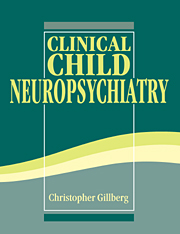Book contents
- Frontmatter
- Contents
- Preface
- Acknowledgements
- Part I General methodological concerns
- Part II Clinical disorders
- 5 Mental retardation and other severe learning disorders: an overview
- 6 Disorders of empathy: autism and autism spectrum disorders (including childhood onset schizophrenia)
- 7 Disorders involving obsessions and compulsions (including Tourette syndrome and eating disorders)
- 8 Deficits in attention, motor control and perception, and other syndromes attributed to minimal brain dysfunction
- 9 Sleep and elimination disorders
- 10 Specific syndromes not otherwise referred to
- 11 Psychotic disorders not elsewhere classified (including mania and depression with psychotic features)
- 12 Traumatic brain injury and its neuropsychiatric sequelae
- 13 Epilepsy and psychiatric problems in childhood
- 14 Other neurological disorders/disabilities
- Part III Assessment
- Part IV Intervention
- Appendices
- Index
13 - Epilepsy and psychiatric problems in childhood
from Part II - Clinical disorders
Published online by Cambridge University Press: 23 December 2009
- Frontmatter
- Contents
- Preface
- Acknowledgements
- Part I General methodological concerns
- Part II Clinical disorders
- 5 Mental retardation and other severe learning disorders: an overview
- 6 Disorders of empathy: autism and autism spectrum disorders (including childhood onset schizophrenia)
- 7 Disorders involving obsessions and compulsions (including Tourette syndrome and eating disorders)
- 8 Deficits in attention, motor control and perception, and other syndromes attributed to minimal brain dysfunction
- 9 Sleep and elimination disorders
- 10 Specific syndromes not otherwise referred to
- 11 Psychotic disorders not elsewhere classified (including mania and depression with psychotic features)
- 12 Traumatic brain injury and its neuropsychiatric sequelae
- 13 Epilepsy and psychiatric problems in childhood
- 14 Other neurological disorders/disabilities
- Part III Assessment
- Part IV Intervention
- Appendices
- Index
Summary
Psychiatric, behavioural and emotional problems in children with various neurological disorders constitute a sadly neglected area from the point of view of systematic scientific study (Matthews, Barabas & Ferrari, 1982; Gillberg, 1991). In spite of the fact that behavioural and emotional problems are often extremely frustrating for families of children with neurological disorder (Taylor & Lochery, 1991), very little, in fact, is known about epidemiology or transactional chains of events in pathogenesis and intervention. The systematic study of behavioural effects (wanted and unwanted) of antiepileptic drugs in the treatment of children and adolescents has been extremely limited (Taylor, 1991).
Furthermore, neuropsychiatric disorders that are not epilepsy but that are akin to epilepsy also exist (Deonna, 1993). Regarding these disorders even less is known (Deonna et al., 1994). Surprisingly, there has been slightly more systematic study of anti-epileptic drug treatment in such disorders in children and adolescents.
Epilepsy is associated with a particularly high rate of psychiatric disorder. According to the Isle of Wight study, uncomplicated epilepsy carries a four-fold increase of the risk that the child will also have psychiatric problems. Almost 30% of 10–11 year-old children with uncomplicated epilepsy had psychiatric problems in that study (Rutter, Graham & Yule, 1970). Children with epilepsy accompanying other neurological disorders had psychiatric problems in 60% of cases. This latter figure represented a prevalence rate almost ten times that found in the general population on the Isle of Wight.
- Type
- Chapter
- Information
- Clinical Child Neuropsychiatry , pp. 279 - 285Publisher: Cambridge University PressPrint publication year: 1995



